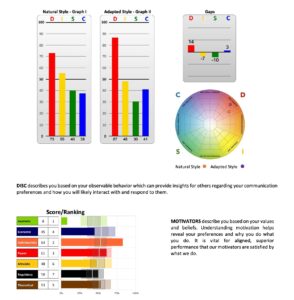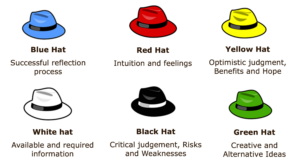
ICF and EMCC certified coach Level 1 and 2
How an International Coaching Certification can elevate your practice In the fast-paced world of coaching, standing out is crucial. Clients and organizations are looking for

How an International Coaching Certification can elevate your practice In the fast-paced world of coaching, standing out is crucial. Clients and organizations are looking for

DISC & MOTIVATORS how the make the difference. In this article, we explore the DISC® analysis from a different perspective, highlighting the innovative aspect

Managing high-performing teams: A workshop kit for coaches who facilitate success Coaching high-performing teams starts with guiding managers to develop the right leadership skills. Even

Unleash the power of Emotional Intelligence coaching in your practice Are you looking to help your clients unlock their full potential? If so, discover

Push the Boundaries of Your Coaching with Artificial Intelligence and Creativity Coaching & Reflection with Art & AI As a coach in an ever-changing

The “Six Thinking Hats” technique, developed by psychologist Edward de Bono, is an innovative tool that enhances thinking, problem-solving, and decision-making processes. For coaches, it offers a structured way to guide individuals or teams through complex challenges by encouraging diverse perspectives. This method helps clients explore new ideas, gain clarity, and develop well-rounded solutions.

As coaches, we all know that our first tool is simply ourselves. Hence the importance of taking care of ourselves, our ‘alignment’ and our presence with others. Everything we need to actively listen to our clients and help them achieve their goals. However, we thought it would be interesting to return to the subject of the professional tests we use: personality, skills or values tests, etc. They can play a key role in our coaching practice, bringing significant benefits for both coachees and coaches. What are the main benefits of professional tests for our approach and our coaches ?

As a business coach, your goal is to help leaders build high-performing teams. Achieving this requires more than just strategy—it demands continuous commitment, much like coaching a sports team. By drawing on lessons from the world of sport, you can inspire your clients to elevate their team’s energy, productivity and business performance.
Understanding Work Energy in Business
Successful teams, like winning sports teams, manage their energy well. As a coach, help your clients understand the three key types of energy that drive performance:
Physical Energy – The stamina and effort required to complete tasks.
Mental Energy – Focus, decision-making, and problem-solving abilities.
Emotional Energy – Motivation, commitment, and resilience.
Encourage leaders to assess their team’s current energy levels and identify any areas of imbalance. Are some employees overworked? Are others disengaged? By recognising these issues, you can guide them in redistributing energy for maximum efficiency.

As a coach, self-reflection is essential for personal and professional development. But how often do you make time to really reflect on your own practice?

Organisational coaching enhances workplace dynamics, driving employee growth, and fostering a culture of continuous improvement. It goes beyond the individual, aiming to align personal development